How Contract Research Organisations (CROs) Support Medical Product Development
Contract Research Organizations (CROs) play a vital role in the pharmaceutical, biotechnology, and medical device industries. These companies offer a wide range of clinical trial services to support product development. In this article, we will delve into the responsibilities and significance of CROs, highlighting their essential contributions to the medical field.

What Services Do Contract Research Organizations (CROs) Provide?
A CRO is a valuable ally for sponsors who want to conduct clinical trials in compliance with industry standards. By working with a CRO, sponsors can benefit from specialized skills and experience on a project-by-project basis. The main goal of a CRO is to plan, coordinate, execute, and manage all aspects of a clinical trial while ensuring safety and quality.
The following are some of the key services that CROs provide:
Regulatory Affairs: Complying with Complex Regulations One of the most important services that CROs provide is regulatory affairs. This involves ensuring that clinical trials comply with the complex regulations and guidelines that govern the industry. CROs have the expertise and knowledge to handle regulatory affairs effectively, ensuring that clinical trials meet the industry standards and expectations.
Clinical Trial Planning: Designing an Effective Strategy Another service that CROs provide is clinical trial planning. This involves designing trial protocols and procedures that optimize trial efficiency and outcomes. CROs have the skills and experience to develop strategic plans for the conduct of clinical trials, ensuring that they are well-designed and feasible.
Site Selection and Initiation: Choosing Suitable Research Sites CROs also take care of site selection and initiation, which involves identifying appropriate research sites for conducting clinical trials. CROs assess and evaluate potential sites to ensure that they have the necessary infrastructure and capabilities to conduct successful trials.
Recruitment Support: Enrolling Patients in a Timely Manner To ensure that clinical trials are completed on time, CROs provide recruitment support by facilitating patient enrollment. CROs use effective strategies and leverage their extensive network to find eligible participants for trials.
Clinical Monitoring: Safeguarding Safety and Data Quality One of the most essential services that CROs provide is clinical monitoring, which involves ensuring the safety of trial participants and the quality of trial data. CROs monitor the progress and performance of clinical trials, identifying and resolving any potential risks or issues that may occur during the trial.
Data Management: Collecting and Analyzing Trial Data Another vital service that CROs provide is data management, which involves collecting, organizing, and analyzing trial data. CROs use robust systems and methods to ensure accurate and reliable data analysis.
Trial Logistics: Handling Critical Aspects CROs also handle trial logistics, which involves managing aspects such as drug supply and trial documentation. CROs handle these aspects meticulously to ensure smooth operations and execution of clinical trials.
Biostatistics: Interpreting Trial Results CROs also use statistical methods and analysis to interpret and draw conclusions from trial results. Through biostatistics, CROs provide valuable insights that help understand the effectiveness and safety of treatments.
Medical Writing: Preparing Detailed Trial Reports Another service that CROs provide is medical writing, which involves preparing detailed trial reports that communicate the findings of clinical research. CROs employ skilled medical writers who prepare clear and comprehensive reports that follow industry standards and effectively convey the outcomes of clinical trials.
Project Management: Achieving Successful Trial Completion Contract Research Organizations (CROs) manage all aspects of clinical trials, acting as project managers. They ensure effective communication and collaboration among various stakeholders and carefully manage trial schedules, resources, and outcomes to achieve successful trial completion.
How CROs Contribute to the Clinical Trial Lifecycle ?
Planning Phase: Developing a Sound Trial Protocol In the planning phase of a clinical trial, Contract Research Organizations (CROs) work closely with sponsors to develop a sound trial protocol. By using their expertise, CROs help in creating a well-designed and scientifically valid plan that addresses research goals and ensures ethical conduct.
Execution Phase: Managing and Ensuring Ethical Standards During the execution phase, CROs play a vital role in managing trial activities and ensuring adherence to ethical standards. They closely monitor trial progress, making sure that the trial is conducted in compliance with regulations and guidelines, while also protecting the welfare of participants.
Monitoring and Quality Control: Maintaining Trial Integrity CROs conduct regular site visits and monitor trial progress to preserve the integrity of the trial. By applying rigorous quality control measures, they detect and correct any issues that may affect the reliability and validity of trial data.
Data Analysis and Reporting: Generating Meaningful Insights The analysis of trial data and the preparation of detailed reports are key responsibilities of Contract Research Organizations (CROs). By using advanced statistical techniques, they analyze data to generate meaningful insights, facilitating evidence-based decision-making in the medical field.
Regulatory Compliance: Supporting with Submissions CROs support sponsors in complying with regulatory requirements throughout the clinical trial lifecycle. They provide guidance and assistance in preparing and submitting regulatory documents, ensuring that all necessary approvals are obtained and that trials are conducted ethically and in accordance with applicable regulations. Collaboration between CROs and Academia Promoting Transparency and Ethical Standards Collaboration between Contract Research Organizations (CROs) and academia fosters transparency and upholds ethical standards in research. By combining academic knowledge with industry expertise, these partnerships create an environment of integrity and credibility.
Study Design and Protocol Development: Utilizing Academic Expertise The involvement of academia in study design and protocol development improves the robustness of clinical trials. Contract Research Organizations (CROs) collaborate with academic institutions to utilize their expertise, ensuring that trial designs are scientifically rigorous and capable of producing reliable data.
Investigator Recruitment: Finding Qualified Participants Contract Research Organizations (CROs) and academia cooperate to find qualified investigators who can contribute to the successful execution of clinical trials. By drawing upon academic networks and resources, CROs collaborate with academic institutions to recruit experienced and knowledgeable investigators.
Data Collection and Analysis: Combining Academic Knowledge with CRO Capabilities The combination of academic knowledge and the capabilities of Contract Research Organizations (CROs) results in accurate and insightful data collection and analysis. CROs work closely with academic partners to ensure that data collection methods align with rigorous scientific standards, enabling reliable and valid conclusions to be drawn.
Regulatory Compliance: Following Ethical Guidelines Collaboration between CROs and academia emphasizes following regulatory requirements throughout the research process. By integrating academic expertise and CRO capabilities, these partnerships ensure that trials are conducted ethically and in compliance with applicable regulations.
Benefits of Academic-Industry Partnerships in CRO Jobs
Combining Scientific Expertise and Practical Application Academic-industry partnerships within CRO jobs create a synergy between scientific expertise and practical application.
- By integrating academic research with industry knowledge, these partnerships foster innovative solutions to research challenges, enhancing the efficiency and effectiveness of clinical trials. Advancing Medical Knowledge Partnerships between academia and Contract Research Organizations (CROs) contribute to the advancement of medical knowledge.
- By conducting research studies and clinical trials, these partnerships generate valuable insights and contribute to scientific breakthroughs that pave the way for innovative therapies and treatments. Improving Patient Outcomes The partnership between academia and CROs directly impacts patient care and outcomes.
- By adopting evidence-based practices derived from rigorous research, healthcare professionals can provide improved treatment options, enhance patient care, and positively influence the well-being of individuals. Continuous Professional Development For researchers and professionals in the field, academic-industry partnerships offer opportunities for continuous professional development.
- By participating in CRO projects, researchers can gain industry experience, expand their skill set, and bridge the gap between academia and practical research applications.
Conclusion: Contract Research Organizations (CROs) play an indispensable role in the successful execution of clinical trials, ensuring compliance with regulations and maintaining high standards of quality and ethics. Through their partnerships with academia, CROs facilitate the advancement of medical knowledge, contribute to the development of innovative therapies, and ultimately improve patient outcomes. The seamless integration of academic expertise and industry capabilities within CRO jobs creates a synergy that drives scientific progress and positively impacts the healthcare industry as a whole.




